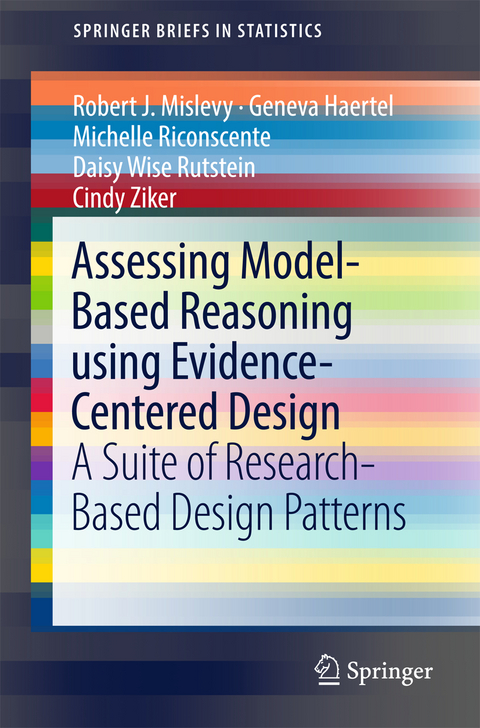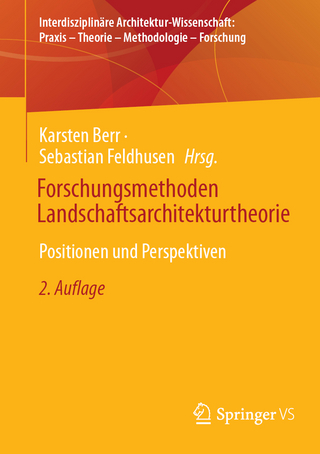
Assessing Model-Based Reasoning using Evidence- Centered Design
Springer International Publishing (Verlag)
978-3-319-52245-6 (ISBN)
This Springer Brief provides theory, practical guidance, and support tools to help designers create complex, valid assessment tasks for hard-to-measure, yet crucial, science education standards. Understanding, exploring, and interacting with the world through models characterizes science in all its branches and at all levels of education. Model-based reasoning is central to science education and thus science assessment. Current interest in developing and using models has increased with the release of the Next Generation Science Standards, which identified this as one of the eight practices of science and engineering. However, the interactive, complex, and often technology-based tasks that are needed to assess model-based reasoning in its fullest forms are difficult to develop.
Building on research in assessment, science education, and learning science, this Brief describes a suite of design patterns that can help assessment designers, researchers, and teachers create tasks for assessing aspects of model-based reasoning: Model Formation, Model Use, Model Elaboration, Model Articulation, Model Evaluation, Model Revision, and Model-Based Inquiry. Each design pattern lays out considerations concerning targeted knowledge and ways of capturing and evaluating students' work. These design patterns are available at http://design-drk.padi.sri.com/padi/do/NodeAction?state=listNodes&NODE_TYPE=PARADIGM_TYPE. The ideas are illustrated with examples from existing assessments and the research literature.Robert J. Mislevy, PhD, is Frederic M. Lord Chair in Measurement and Statistics at the Educational Testing Service in Princeton, New Jersey, and Professor Emeritus at the University of Maryland. Geneva D. Haertel, PhD, is Director of Assessment Research and Design at the Center for Technology in Learning, SRI International. Michelle M. Riconscente, PhD, is Director of Learning and Assessment at GlassLab in California. Daisy Wise Rutstein, PhD, is Education Researcher in the Education Division at SRI International. Cindy S. Ziker, PhD, MPH, is Senior Researcher for Assessment in the Education Division of the Center for Technology and Learning at SRI International.
Preface.- Introduction.- Model-Based Reasoning.- Evidence-Centered Assessment Design.- Design Patterns for Model-Based Reasoning.- Model Formation.- Model Use.- Model Elaboration.- Model Articulation.- Model Evaluation.- Model Revision.- Model-based Inquiry.- Conclusion.- References.- Appendix.- Summary Form of Design Patterns for Model-based Reasoning.- Appendix.
| Erscheinungsdatum | 28.04.2017 |
|---|---|
| Reihe/Serie | SpringerBriefs in Statistics |
| Zusatzinfo | XVII, 130 p. 23 illus., 9 illus. in color. |
| Verlagsort | Cham |
| Sprache | englisch |
| Maße | 155 x 235 mm |
| Themenwelt | Sozialwissenschaften ► Soziologie ► Allgemeine Soziologie |
| Sozialwissenschaften ► Soziologie ► Empirische Sozialforschung | |
| Schlagworte | Assessment • Assessment, Testing and Evaluation • Bayesian • Cognition and cognitive psychology • Design Patterns • Educational technology • Educational: Technology • Education: examinations and assessment • Evidence-Centered Design • inference • Learning & Instruction • Learning and Instruction • Learning & Instruction • learning science • mathematics and statistics • model articulation • model-based inquiry • Model-Based Reasoning • model elaboration • Model Evaluation • model formation • model revision • model use • Next Generation Science Framework • probability and statistics • science education • Social research and statistics • Statistical Theory and Methods • Statistics for Social Science, Behavorial Science, • teacher training • Teaching and teacher education • Teaching skills and techniques |
| ISBN-10 | 3-319-52245-0 / 3319522450 |
| ISBN-13 | 978-3-319-52245-6 / 9783319522456 |
| Zustand | Neuware |
| Informationen gemäß Produktsicherheitsverordnung (GPSR) | |
| Haben Sie eine Frage zum Produkt? |
aus dem Bereich


